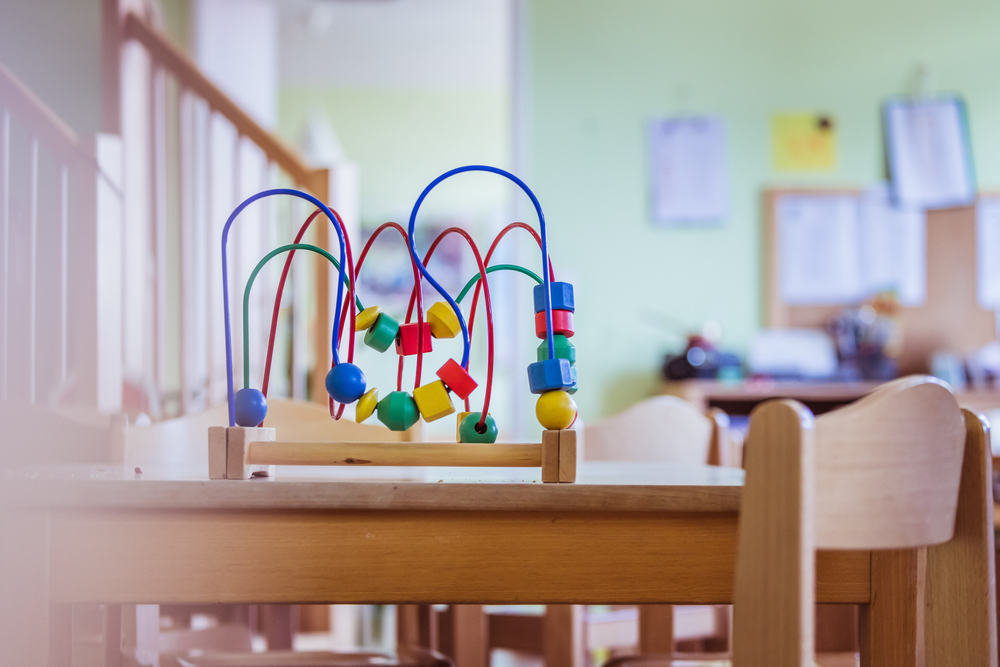Enhancing observational skills Physical Science Worksheets for Ages 7-8
5 filtered results
-
From - To
Enhance your child's observational skills with our engaging Physical Science worksheets designed specifically for ages 7-8! These printable resources encourage young learners to explore the science around them, fostering curiosity about the world. Each worksheet includes fun activities that promote careful observation, critical thinking, and inquiry-based learning. Children will develop essential skills such as identifying patterns, describing physical properties, and making comparisons, all while enjoying interactive exercises. Foster a love for science and encourage hands-on exploration with our thoughtfully crafted worksheets that make learning fun and effective. Start your child's journey into the wonders of physical science today!
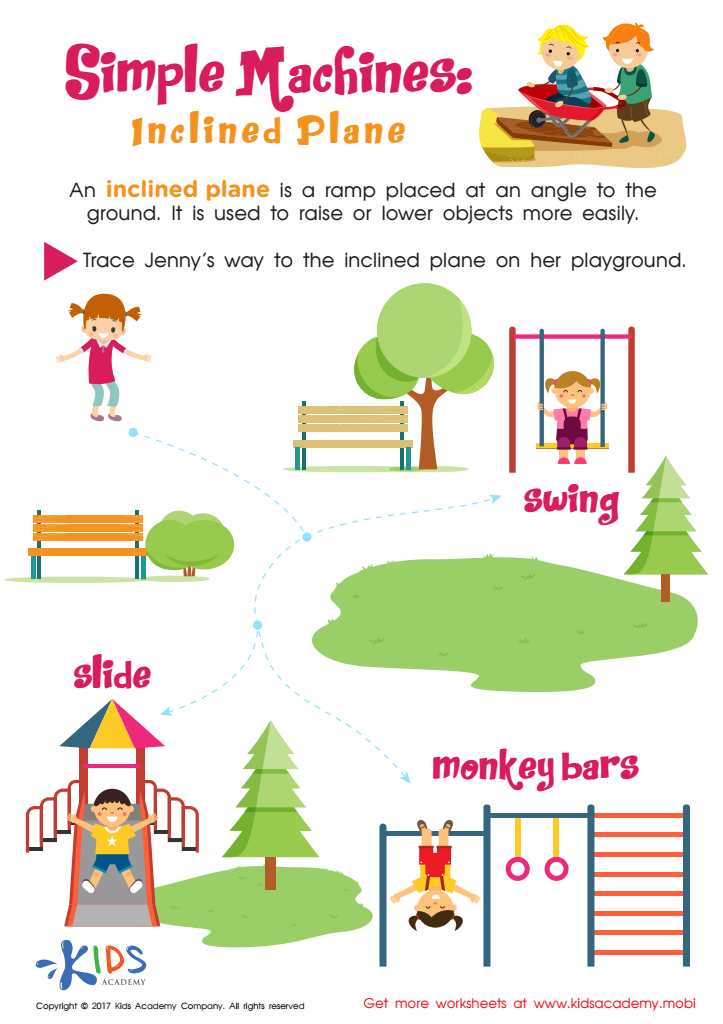

Simple Machines Inclined Plane Worksheet
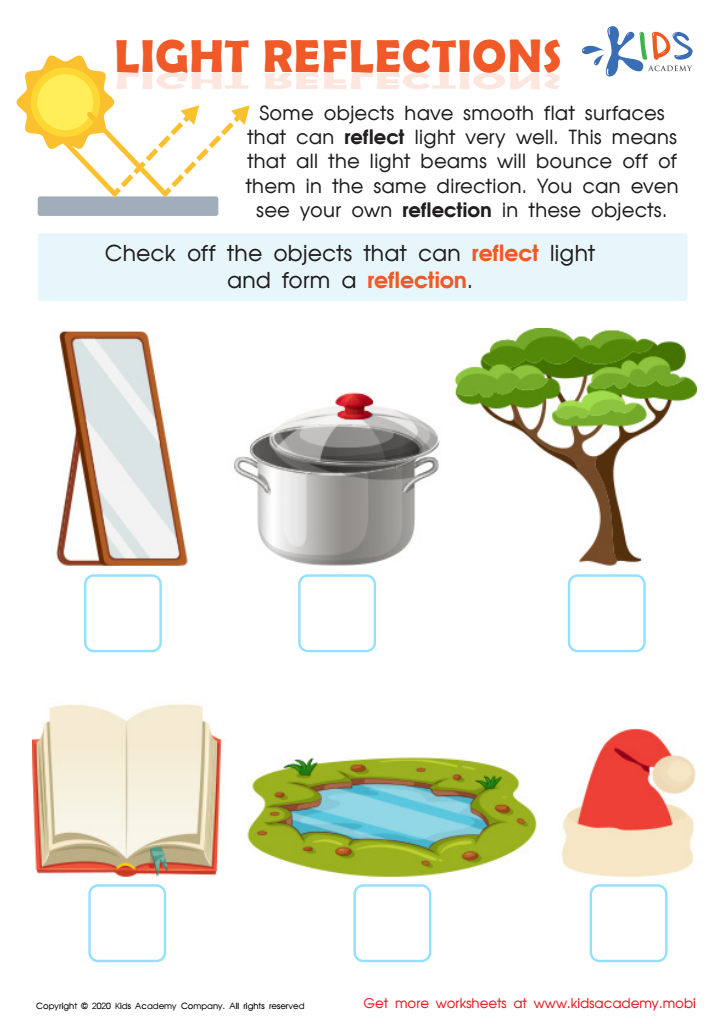

Light Reflections Worksheet
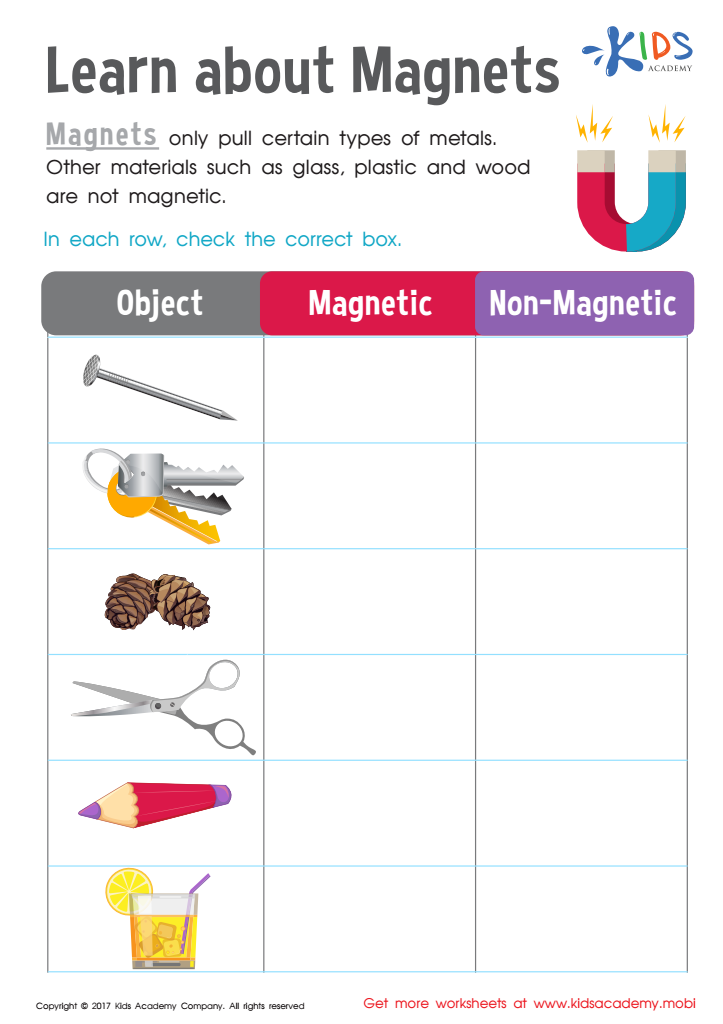

Magnetic Or Not Worksheet
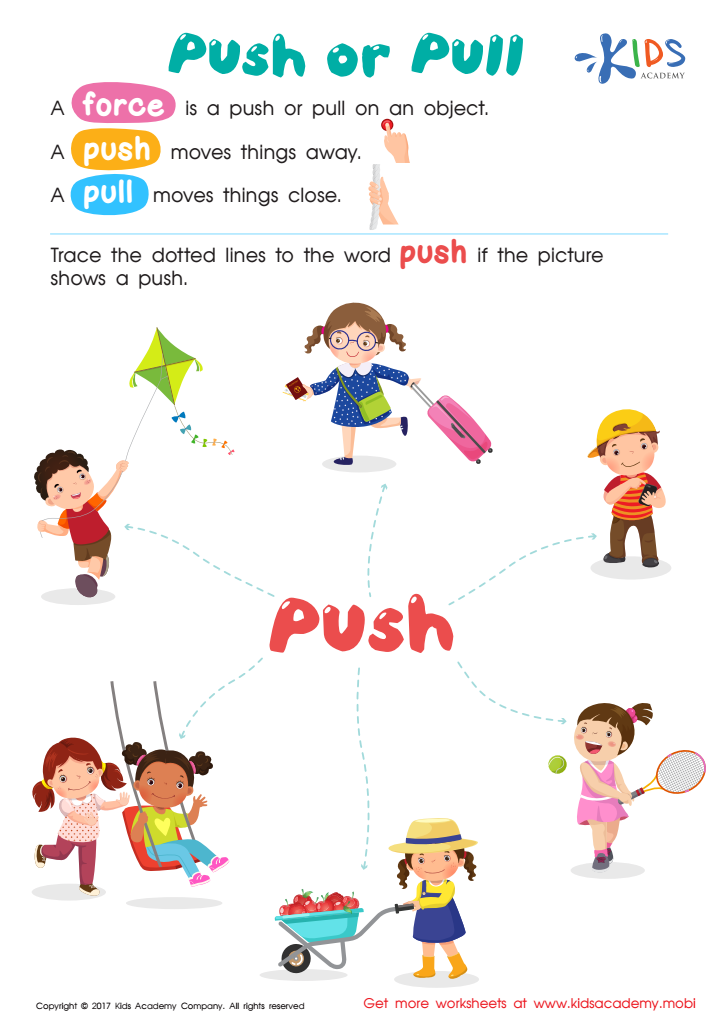

Push or Pull Worksheet
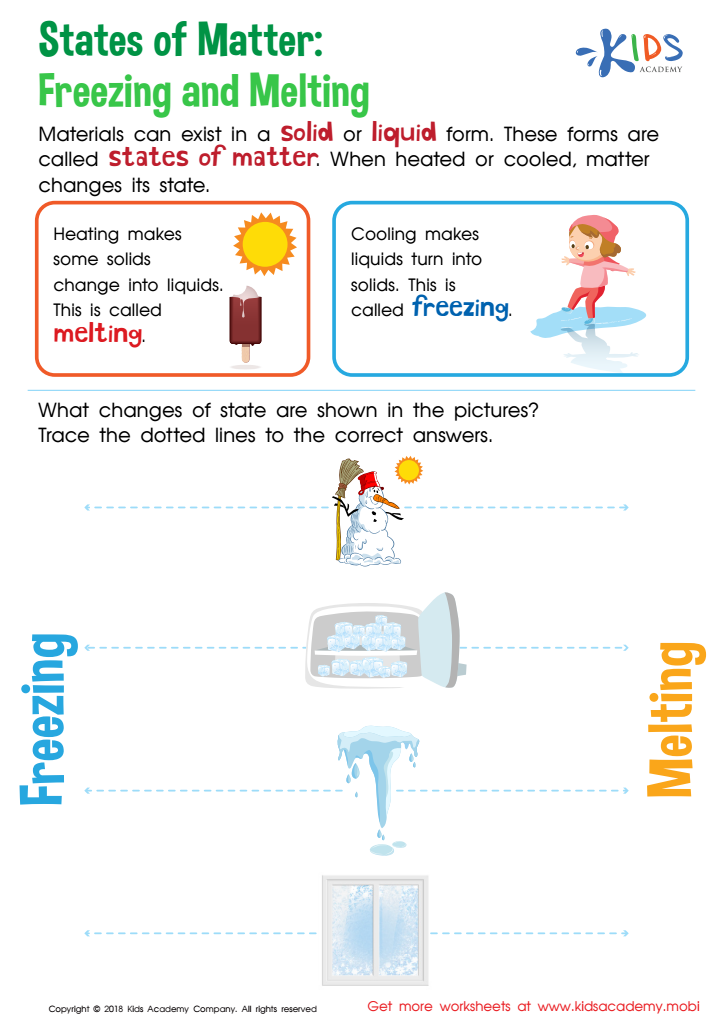

States of Matter: Freezing and Melting Worksheet
Enhancing observational skills in Physical Science for children ages 7-8 is crucial for several reasons. At this age, children are naturally curious, eager to explore their surroundings, and motivated to ask questions about the world. Strengthening their observational skills fosters this curiosity and helps them develop critical thinking abilities. Through hands-on experiments and scientific investigations, children learn to notice patterns, distinguish between results, and draw conclusions based on their observations. This not only supports their scientific understanding but also reinforces foundational skills in literacy and mathematics.
Moreover, keen observational skills enhance children's ability to communicate effectively. As they describe their findings or share their observations, they engage in discussions that build their language and vocabulary. These nurtured skills contribute significantly to their academic success and cultivate a lifelong love of learning.
Additionally, teaching children to observe carefully encourages mindfulness and attention to detail, traits beneficial across all subjects and in personal development. Parents and teachers play a pivotal role in guiding this learning process, making it essential for them to prioritize and support programs and activities that enhance their observational skills in science. Ultimately, fostering these skills empowers children to become thoughtful, inquisitive learners capable of understanding and engaging with the world around them.
 Assign to My Students
Assign to My Students







